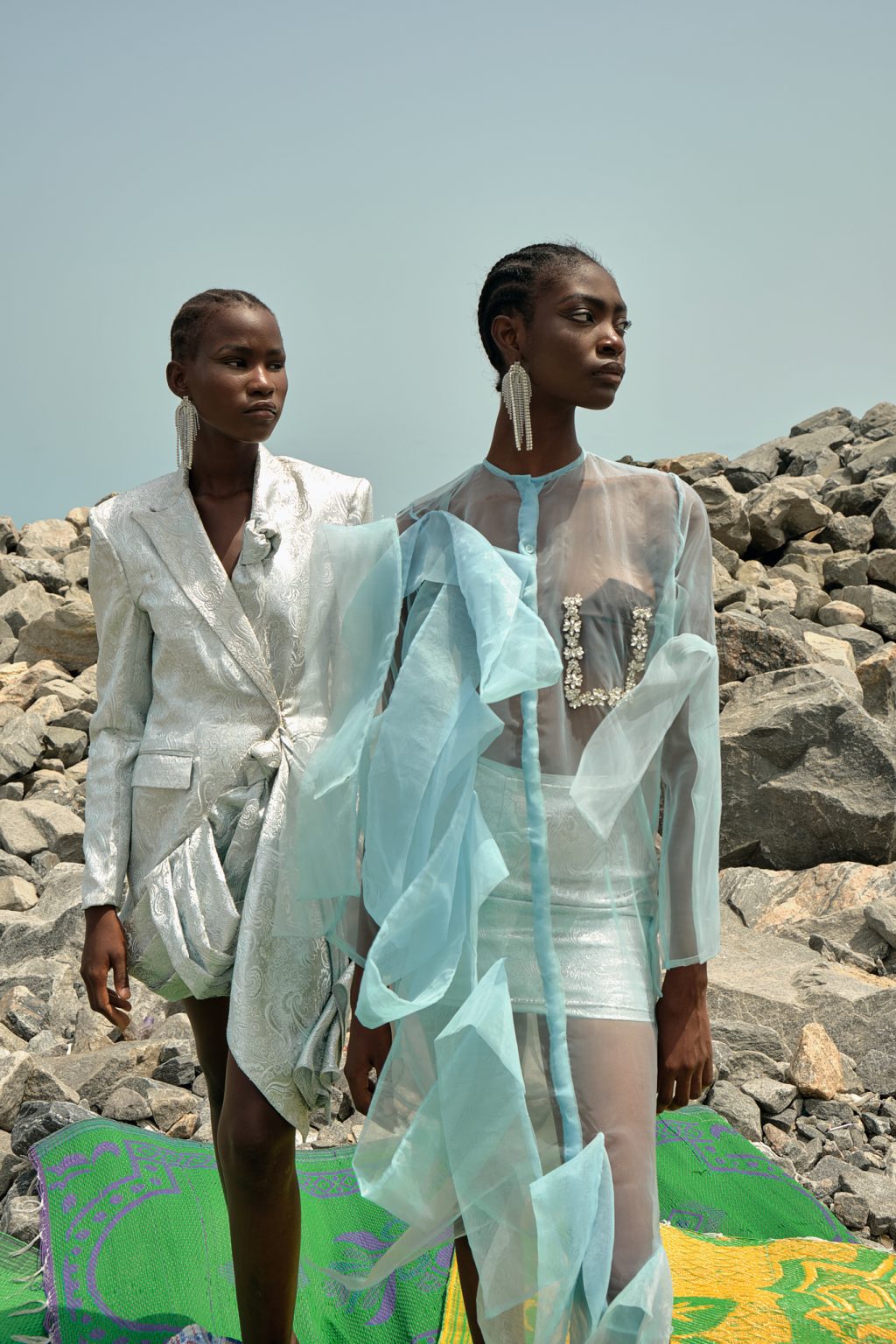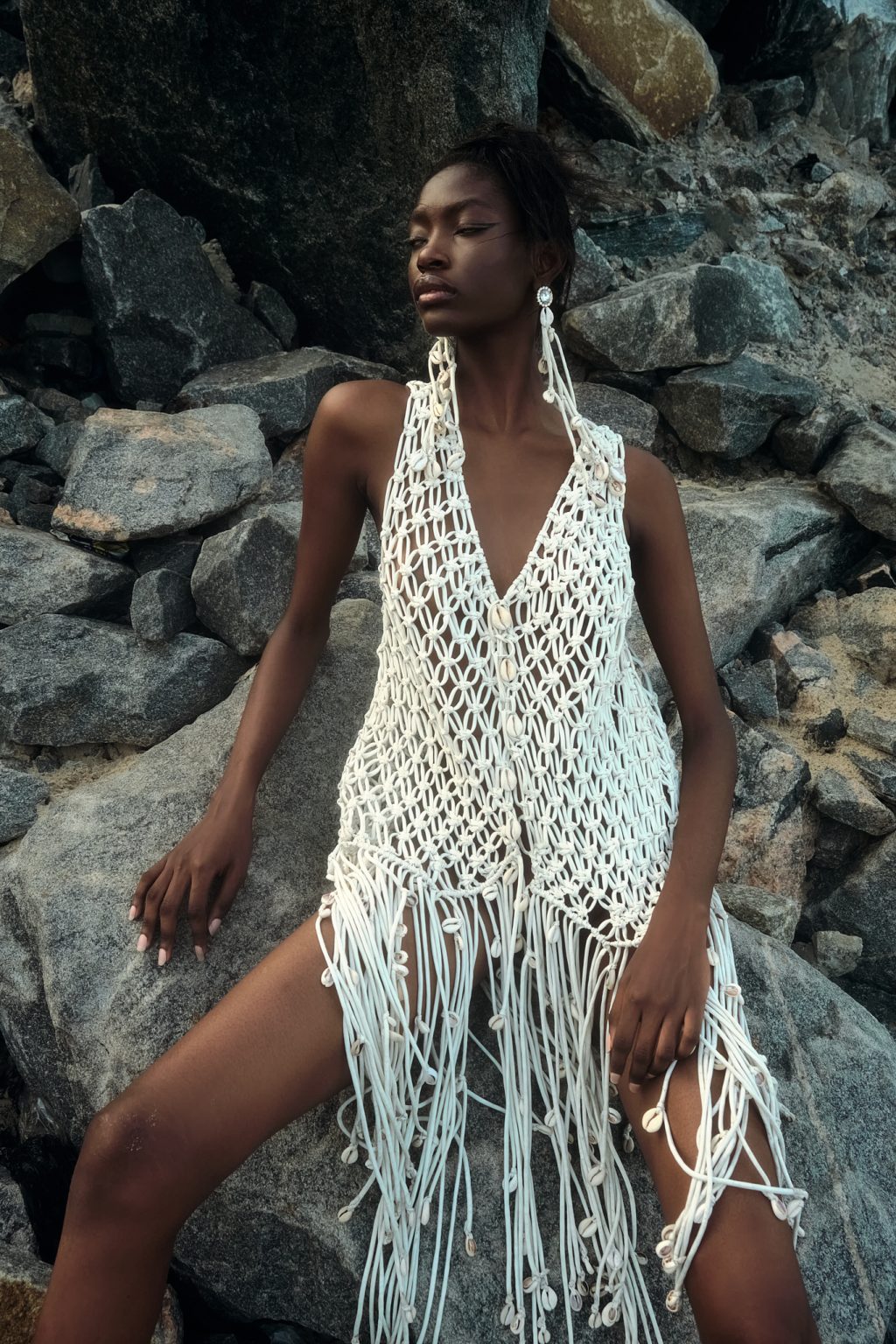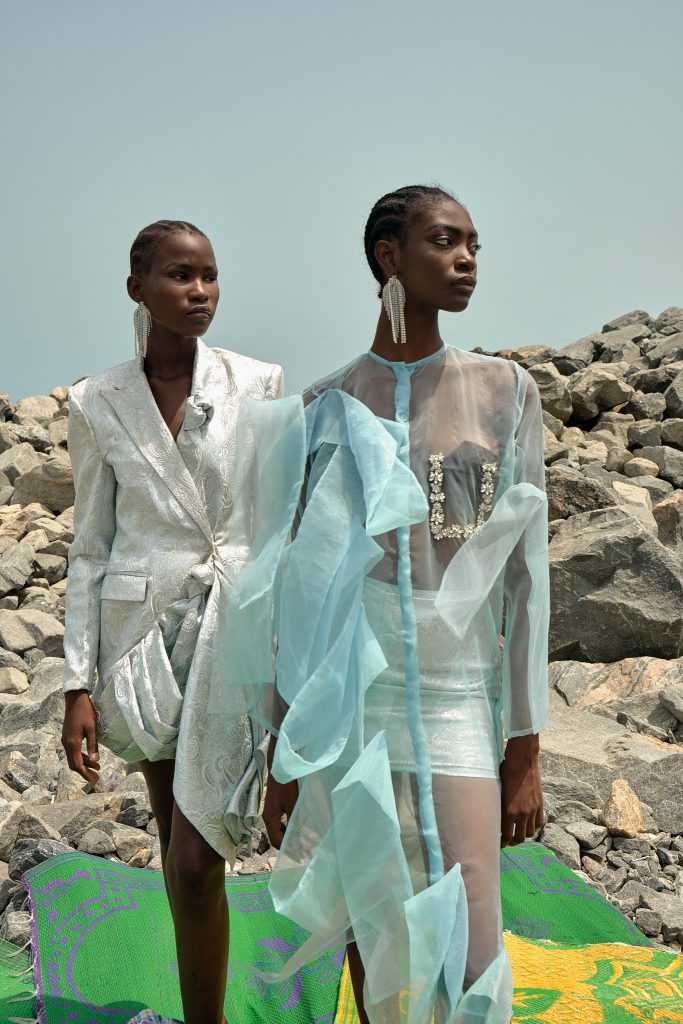SEE FINISH – ‘To have seen it all’
A pidgin term used to describe the inappropriate behaviour that is normalised when boundaries are not clearly defined and enforced in personal or professional relationships.
Events inform a designer’s ethos. For Frank Aghuno, one of those experiences was an invitation to pitch an early collection to a Lagos stockist. He was hopeful that this would be his big break, but she had little patience for inexperience. She called his ambitious collection ‘crap’ and railed about the quality of his finishing, redirecting her frustrations with the failings of an industry and the rigours of running a fashion retail business in an unstructured market into that singular, unrelated interaction, embarrassing him in front of his brother and collaborator. She softened when she realised they had shared ancestry and regretted her lack of tact but the damage was done, and the lesson learned. The only way to be taken seriously was to learn the rules, and then break them. Women worldwide have worn Fruché, which resonates with the distinct Nigerian influences that inform our house codes. Technology was the bridge, allowing our brand to reach a global audience. But that access also comes with expectations, many of which seem at odds with the lived reality of the average Nigerian who Fruché desires to dress. Fashion forums discuss climate change and push for sustainability. It all seems urgent but has no context in our studio where every piece is cut by hand and sewn by local artisans who are integral to executing our collections. Every scrap is saved and repurposed, not to save the earth, even though it makes great copy for press releases, but because it is not Nigerian to
waste – fabric, resources, or manpower.
This collection, exemplified by the phrase ‘See Finish’, is an exploration of the multiple parallel realities designers working on the continent are expected to understand and represent in their work. On the surface, it is two English words stitched together, but its meaning shifts and morphs depending on which Nigerian is saying it and the context in which it is used. Much like that phrase, this collection is built with tools and techniques Western audiences instantly recognise to tell stories layered with meaning that is understood only by us.
‘See Finish’ draws inspiration from the many ways colonialism continues to evolve, and the ways culture continues to assert itself, despite attempts to dilute its essence and corrupt its value. It reclaims the dismissive language that is deployed when accountability is demanded of the people who profit off this pillaging of African land, the deflection of
responsibility for problems not of our making. Our execution relies heavily on imagery, recontextualised to explore difficult questions about African history and how it informs the present, to mirror the questions that are asked of Fruché as a label with a global outlook back to the people who must find the answers and implement them.




